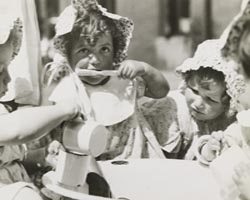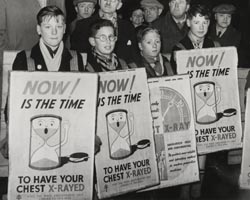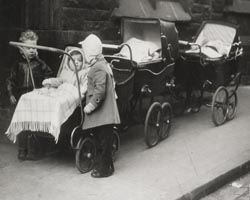


Schools
Welcome to LHSA
Lothian Health Services Archive holds the historically important local records of NHS hospitals and other health-related material. We collect, preserve and catalogue these records and promote them to increase understanding of the history of health and for the benefit of all.
The majority of our collections are made up of paper-based administrative, managerial and clinical records, however, we also collect private papers, photographs and objects relating to the history of healthcare.
Collaboration with Schools
LHSA worked with Learning and Teaching Scotland to make LHSA material available to schools and teachers in line with the Curriculum for Excellence.
We also work with the University of Edinburgh's Widening Participation scheme, and the Kickstart summer school, giving local secondry school students a taste of university life through activities and workshops.
Could you use LHSA records to teach your history classes/projects?
We hold a variety of different types of collections which have come from different hospitals, organisations and individuals. You can search our collection catalogues via this website, and we also have a number of online exhibitions available to showcase our collections.
Online exhibitions and resources
If you are planning a project or series of classes relating to the history of health and medicine in some way, then we may be able to help. Liaison with schools (primary and secondary) is an area in which LHSA is keen to develop. We would like to explore opportunities for LHSA staff to visit schools and show pupils reproductions of original documents, or it may be possible to arrange small group visits to the Archive itself.
Please contact us if you think we may be able to help you and/or your school; if you think there is anything we could add to this section of the website; or if you have any questions about any of our services.
Designed by the Learning Technology Section, © The University of Edinburgh

